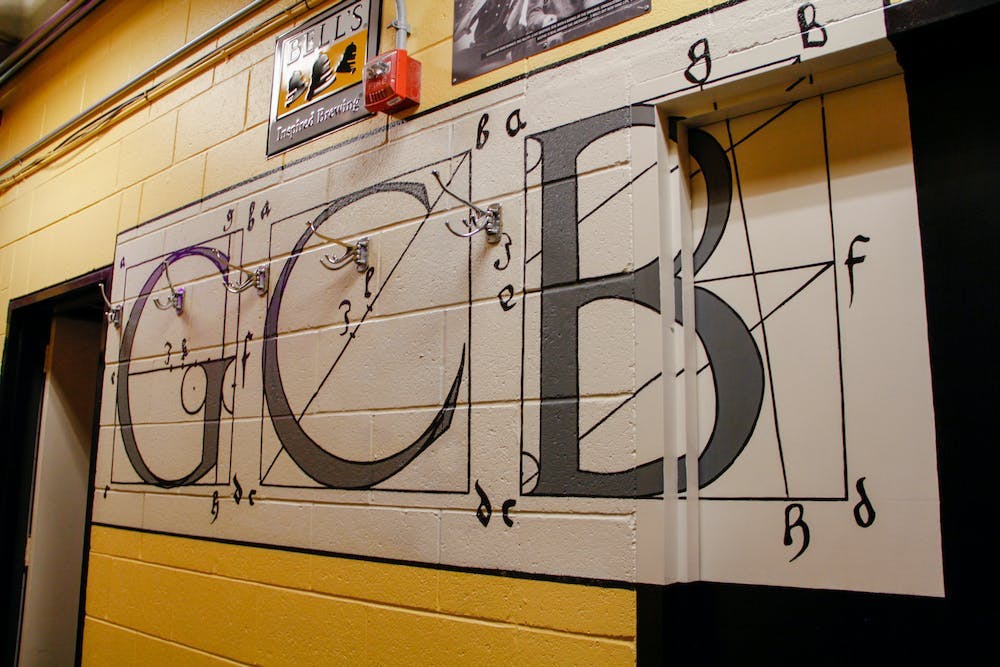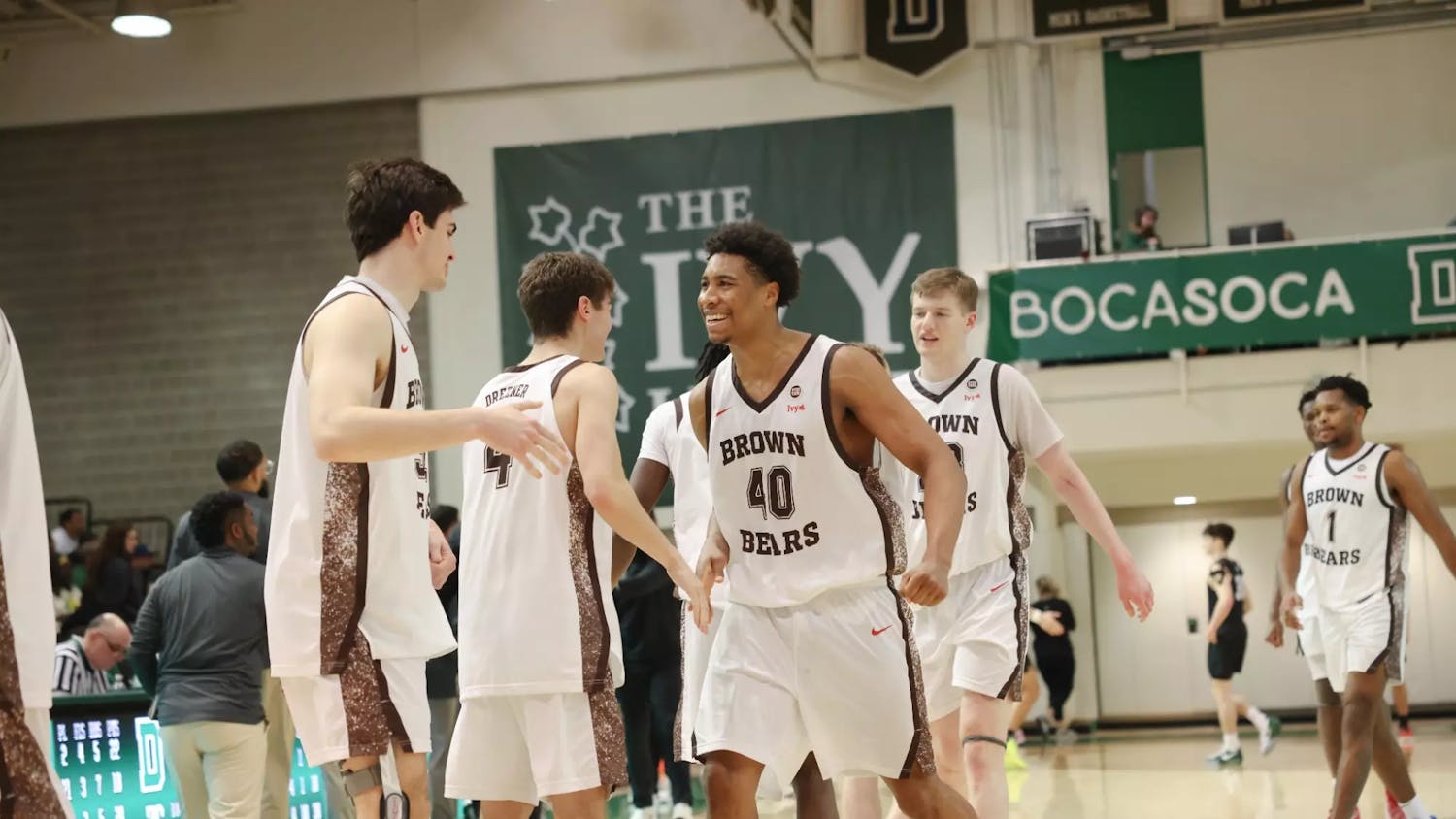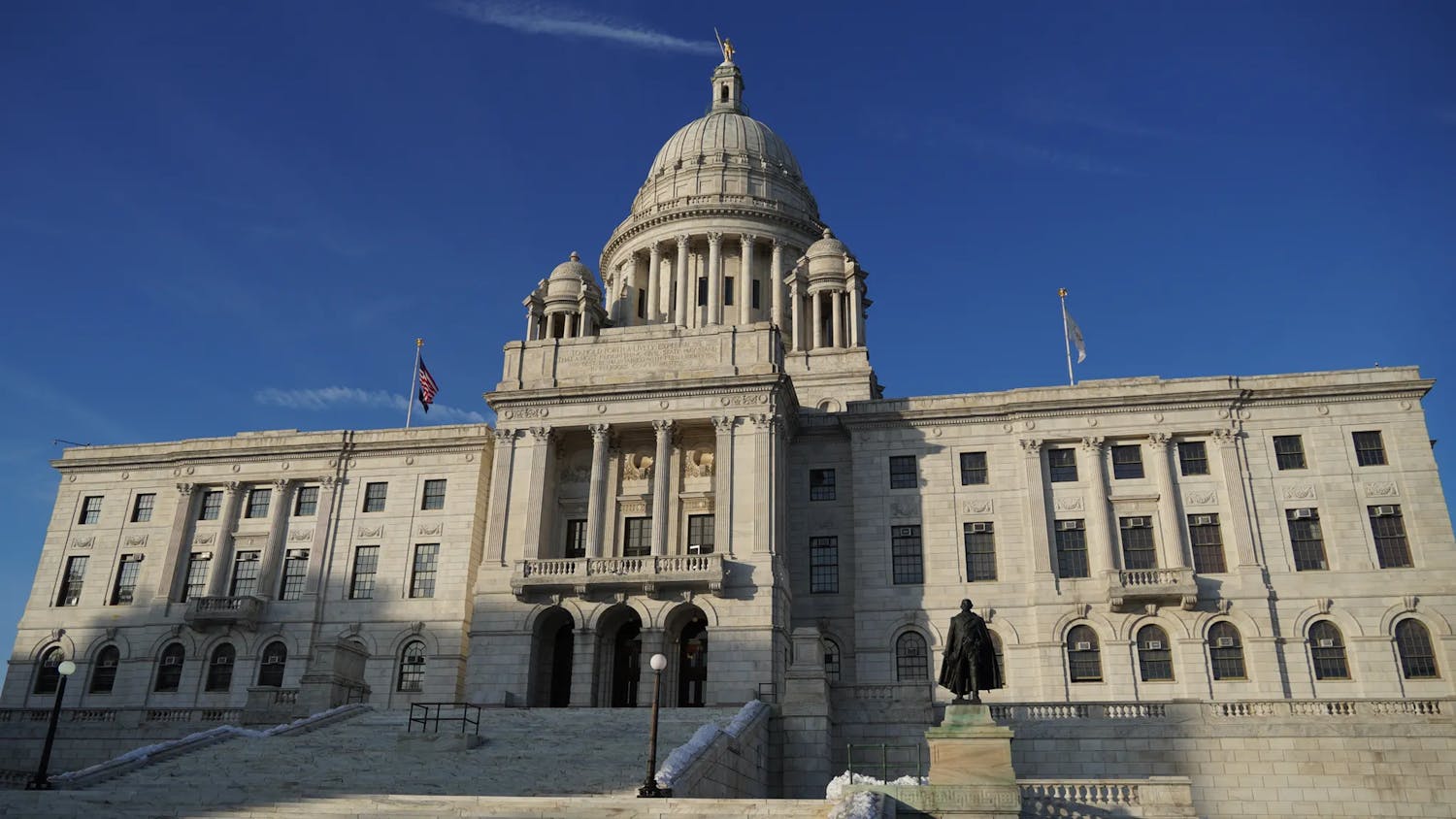In early April, Miraal Zafar ’23 joined a campus-wide student boycott of the Graduate Center Bar. Organized by Okezie Okoro ’22, the boycott was held in response to an April 7 incident in which a GCB employee told Okoro to leave the bar premises after the two had a disagreement. Lasting through late April, the boycott reduced the GCB’s business by around one-third, said GCB Manager Susan Yund.
But Zafar now regularly joins the crowd of students visiting the GCB — a group that often reaches more than 400 students on weekends, Yund noted. Following the boycott, the GCB announced a series of policy changes including the installation of cameras at entryways, the creation of staff de-escalation training and the revision of bar removal policies. GCB leadership and several student patrons told The Herald that the bar has since become a welcoming recreational space on campus.
Okoro, who met with GCB leadership following the incident, told The Herald that he is satisfied with the changes, adding that he “just wanted to be able to prevent future incidents of students feeling not welcome or disrespected in the space.” The GCB’s changes demonstrate a commitment to those goals, he added.
Okoro noted that GCB visitors and University undergraduates are “fairly diverse” in their experiences and identities, which means that having the GCB “reaffirmed as a safe space for other folks” is all the more important.
Okoro added that he did not personally attend the bar following the end of the boycott. “It wasn’t really for me,” he said.
According to GCB Assistant Manager Patrick Cull, the bar’s policy changes focus on transparency in communication with patrons.
GCB is now “more clear about the steps” that follow disagreements between staff and customers, Yund said. For example, staff are now instructed to warn patrons that they might be removed from the bar following an incident, instead of asking them to leave immediately.
“Clear communication is … the number one thing here,” Cull added. “We find that when we clearly communicate with guests and make sure they know they have a venue to clearly communicate with us, most things tend to work really nicely.”
Zafar, who now visits the bar once or twice a month, said that while she does not know about the procedural changes in the GCB, she feels that the bar “is a much better space” since the boycott, highlighting the more positive way employees interact with guests.
She described a visit this semester to the GCB where she brought a friend to the bar who had not visited before. “She didn’t know that she had to bring cash,” Zafar said, but the bouncer “was super nice and let her in” regardless.
Students attributed the bar’s convenient location — beneath the Graduate Center residence halls — as a reason for the quick return of its clientele following the boycott.
“It’s on campus, and everyone’s hanging out with Brown students,” Zafar said. “It gives them a space to have their own bar.”
Resumed Undergraduate Education student Terren Wise ’26 noted that the GCB helps his RUE cohort stay in touch despite their schedule differences. Wise’s cohort “has a tradition to go every Thursday to stay connected,” he explained. “That way, we (can) maintain our community as much as we can over the next several years.”
Zafar also noted that the bar helps her connect with the rest of her class year.
“It’s a college bar specifically for Brown students,” she said. “Especially as a senior, I’m expecting to see other seniors and other people from Brown there on a Thursday or Friday night.”
While Zafar recognized that “there is always room for growth” following last spring’s boycott, she thought that the GCB’s “desire to recognize and change shows” through the GCB’s statement and subsequent actions.
Reflecting on the spring boycott, Okoro said that ideally “these sorts of mediations and changes” would arise organically, but “oftentimes that’s not really something that is completely realistic,” rendering the confrontational nature of a boycott more effective.
The GCB’s staff members “try and make sure this place is as welcoming as possible,” Cull said. Efforts to make the bar more welcoming also include staff members learning American Sign Language to better communicate with patrons.
Despite the changes, Cull said that “there is always more work to do” to make the space more welcoming.
Cull added that the process of “continuous improvement” reflects the structure of the GCB, which is incorporated as a nonprofit.
“It’s not a dollar-driven community,” he said. “It’s a comfort and idea exchange community. And we’re starting to wrap our heads around the idea of reaching (outside of the bar and into the surrounding community) a bit more.”

Neil Mehta was the editor-in-chief and president of the Brown Daily Herald's 134th editorial board. They study public health and statistics at Brown. Outside the office, you can find Neil baking and playing Tetris.





